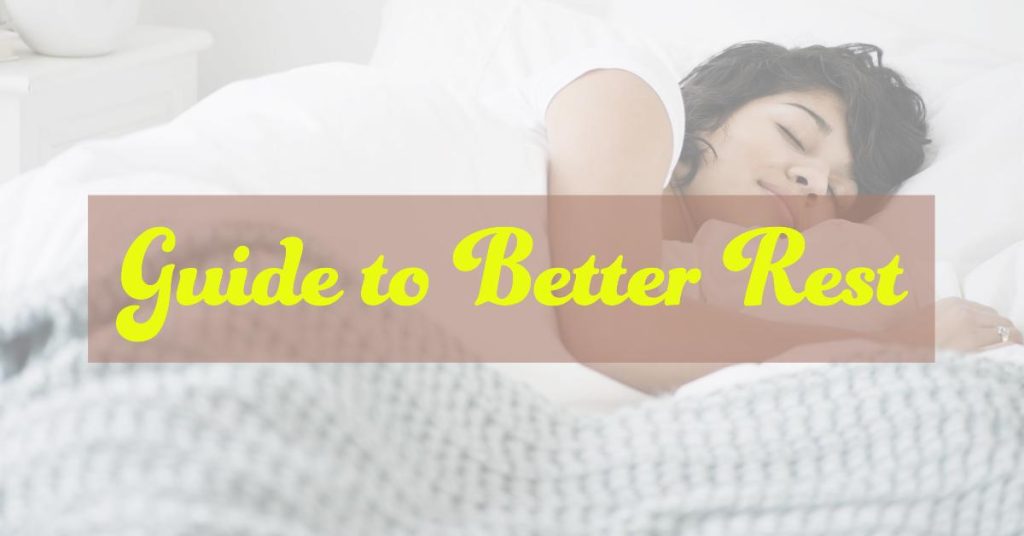Sleep is essential for our overall well-being, yet many people struggle to get the quality rest they need. Various factors, such as stress, poor habits, or a busy lifestyle, can disrupt our sleep patterns. The good news is that you can significantly improve your sleeping habits with some adjustments and dedication.
“A good laugh and a long sleep are the best cures in the doctor’s book.” — Irish Proverb. Let’s dive into some expert-backed tips to help you get that much-needed rest.
Establishing a Consistent Sleep Schedule
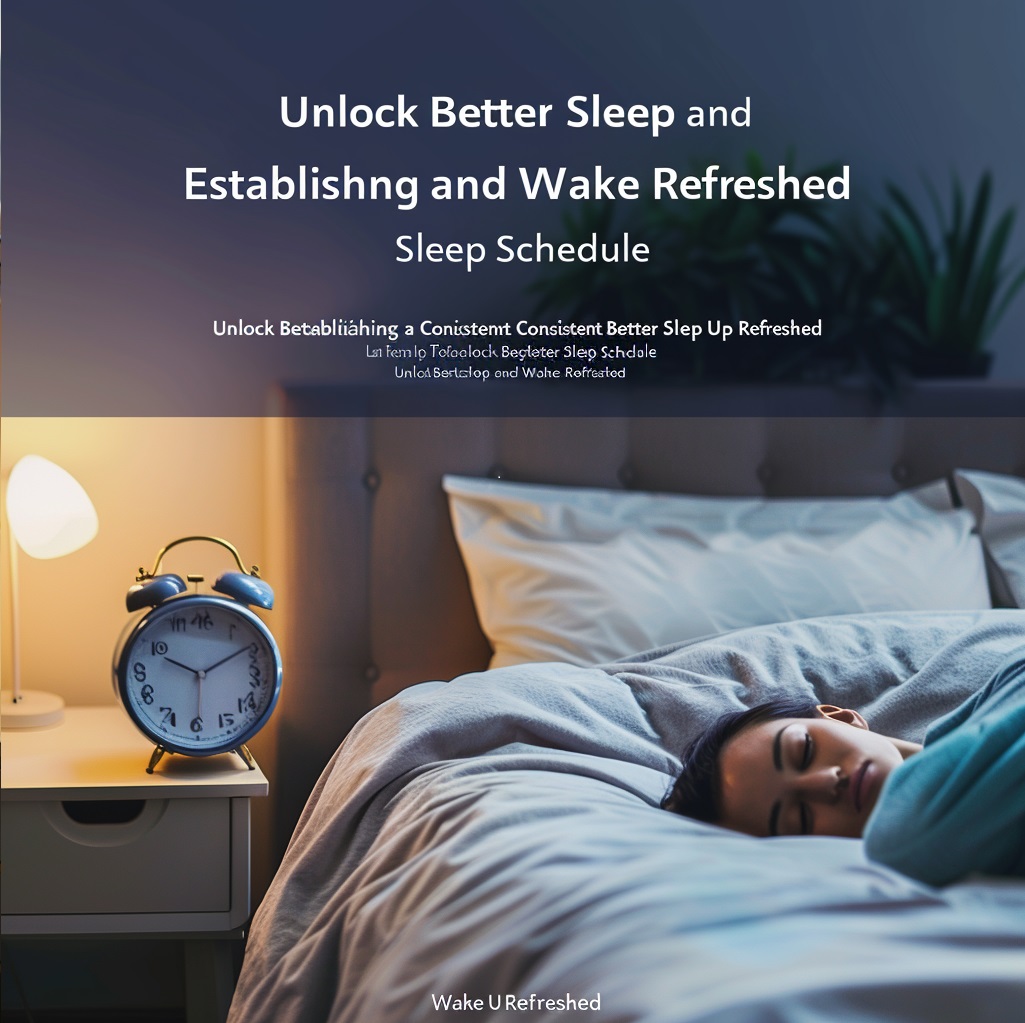
Benefits of a Regular Routine
Maintaining a regular sleep schedule helps regulate your body’s internal clock, the circadian rhythm. This regularity can lead to:
- Easier Sleep Onset: You’ll find it easier to fall asleep and wake up at the desired times.
- Improved Sleep Quality: Consistency enhances the chances of reaching and maintaining the more profound, restorative stages of sleep.
- Daytime Alertness: A stable schedule helps maintain high energy levels and mental sharpness throughout the day.
Tips for Setting a Sleep Schedule
- Determine Your Ideal Times: Choose a bedtime and wake-up time that aligns with your lifestyle and stick to it daily. Avoid drastic changes, even on weekends.
- Reinforce Your Routine: Use visual reminders, alarms, or apps to help you adhere to your sleep schedule. Gradually adjust your timing if necessary.
Creating a Relaxing Bedtime Routine
The Role of a Bedtime Routine
A bedtime routine helps signal your body that it’s time to wind down. This transition from wakefulness to sleepiness can be facilitated by:
- Establishing Rituals: Engaging in calming activities before bed can make it easier to fall asleep.
- Reducing Pre-Sleep Stimulation: A consistent routine helps reduce mental and physical stimulation, making relaxing easier.
Effective Routine Activities
- Read a Book: Choose a physical book or e-reader with a warm light setting. Avoid engaging or stressful content.
- Take a Warm Bath: A warm bath or shower can help relax your muscles and lower your body temperature, signaling to your body that it’s time to sleep.
- Practice Relaxation Techniques: Techniques such as progressive muscle relaxation, deep breathing, or guided imagery can calm your mind and prepare it for sleep.
- Listen to Calming Music: Soft, soothing music or ambient sounds like ocean waves or rain can enhance relaxation and signal your brain that it’s time for sleep.
Optimizing Your Sleep Environment
Ideal Sleep Environment Characteristics
Creating a sleep-friendly environment involves adjusting various factors in your bedroom:
- Temperature: Around 65°F (18°C), a cool room is generally ideal for sleep. Experiment with different settings to find what works best for you.
- Darkness: Complete darkness is crucial for optimal sleep. Use blackout curtains, an eye mask, or even dimming lights in the evening.
- Noise Reduction: Minimize noise disruptions with earplugs, a white noise machine, or calming sounds. Address any persistent noises that may interfere with sleep.
Comfortable Bedding
Investing in high-quality bedding is essential:
- Mattress: Choose a mattress that suits your preferred sleeping position (side, back, stomach) and offers adequate support.
- Pillows: Use pillows that properly support your neck and head, ensuring alignment with your spine.
- Bedding: Opt for breathable, moisture-wicking materials like cotton or bamboo to keep you comfortable throughout the night.
One of the most effective ways to enhance your sleep is to go to bed and wake up simultaneously every day, even on weekends. This consistency helps regulate your body’s internal clock, making it easier to fall asleep and wake up naturally.
Dr. Sarah Johnson, a sleep specialist at the National Sleep Foundation, emphasizes the importance of maintaining a consistent sleep schedule. “Going to bed and waking up at the same time every day, even on weekends, helps regulate your body’s internal clock, making it easier to fall asleep and wake up naturally,” she says. Choose a bedtime that allows for 7-9 hours of sleep and stick to it. Resist the urge to sleep in on weekends, as tempting as it may be.
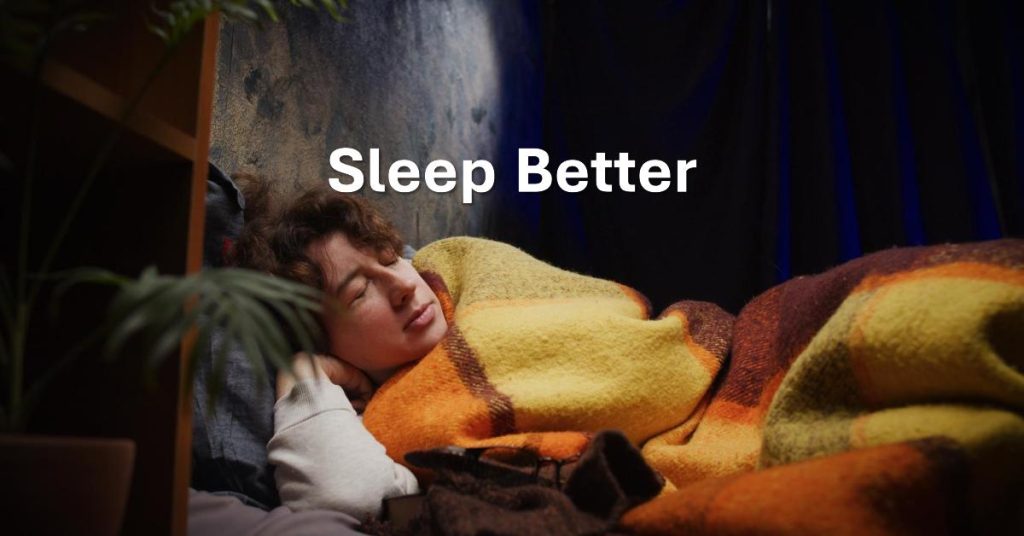
Create a Relaxing Bedtime Routine
Developing a pre-sleep routine can signal your body that it’s time to wind down. Activities that promote relaxation can ease the transition from wakefulness to sleep.
Dr. Michael Breus, also known as “The Sleep Doctor,” suggests developing a pre-sleep routine to signal your body that it’s time to wind down. “Activities that promote relaxation can ease the transition from wakefulness to sleep,” he advises. Consider taking a warm bath, reading a book (preferably something light and non-stimulating), practicing meditation or deep breathing exercises, or listening to calming music or white noise.
Sleep like a baby, wake up like a warrior. Learn how to optimize your sleep and boost your overall health.
Optimize Your Sleep Environment
A comfortable and quiet environment can significantly impact your ability to fall and stay asleep.
“Your bedroom should be a sleep sanctuary,” says Dr. Shelby Harris, a clinical psychologist and author specializing in sleep disorders. “A comfortable and quiet environment can significantly impact your ability to fall and stay asleep.” Keep your room cool—around 65°F (18°C) is ideal. Invest in a comfortable mattress and pillows, and block out light with blackout curtains or a sleep mask. Reducing noise with earplugs or a white noise machine can also be helpful. Keep electronic devices out of reach or, better yet, entirely out of the bedroom.
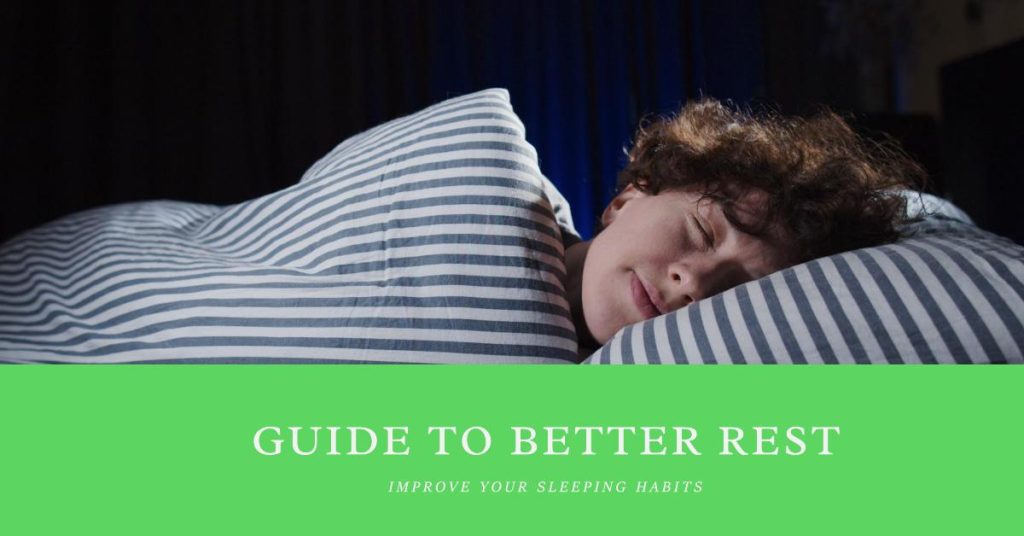
Be Mindful of Your Diet and Hydration
What you eat and drink can affect your sleep. Dr. Nancy Collop, former president of the American Academy of Sleep Medicine, advises avoiding caffeine and nicotine in the evening as they are stimulants that can interfere with your sleep. “While alcohol might make you feel sleepy, it can disrupt your sleep cycles, so limit your intake, especially close to bedtime,” she notes. Avoid large meals late at night; opt for a light snack if you’re hungry. Stay hydrated, but reduce fluid intake before bedtime to avoid nighttime awakenings.
Get Regular Exercise
Dr. Matthew Walker, a renowned neuroscientist and author of “Why We Sleep,” highlights the benefits of regular physical activity. “Exercise can promote better sleep by helping you fall asleep faster and enjoy deeper sleep,” he says. Aim for at least 30 minutes of moderate exercise most days, but finish vigorous workouts at least a few hours before bedtime. Evening workouts, such as yoga or stretching, should be more relaxing to help prepare your body for sleep.
Limit Screen Time Before Bed
The blue light emitted by phones, tablets, and computers can interfere with your body’s melatonin production, which regulates sleep. “Turn off electronic devices at least an hour before bed,” advises Dr. Charles Czeisler, chief of the Division of Sleep and Circadian Disorders at Brigham and Women’s Hospital. Switch on the “night mode” settings if you must use them. Engage in non-screen activities like reading a book or journaling to help your mind wind down.
Impact of Blue Light on Sleep
Blue light emitted from screens can suppress melatonin production, which is essential for regulating sleep. Prolonged exposure to blue light can:
- Delay Sleep Onset: This interferes with your ability to fall asleep at your desired bedtime.
- Reduce Sleep Quality: Affects the depth and vital quality of your sleep.
Strategies to Reduce Screen Time
- Set a Screen Curfew: Aim to turn off all screens at least an hour before bed. Use this time to engage in non-digital activities.
- Use Blue Light Filters: Many devices have settings or apps that reduce blue light exposure. Consider enabling these features in the evening.
- Engage in Non-Screen Activities: Choose relaxing activities like reading, journaling, or listening to calming music.
Manage Stress and Anxiety
Stress and anxiety are common culprits of sleep problems. “Finding effective ways to manage them can improve your sleep quality,” says Dr. Russell Foster, a professor of circadian neuroscience. Practice mindfulness and meditation, journal to process your thoughts and worries, and engage in relaxing hobbies and activities. If stress and anxiety continue to affect your sleep, consider seeking professional help.
Connection Between Stress and Sleep
High levels of stress and anxiety can lead to:
- Difficulty Falling Asleep: Stressful thoughts can keep you awake at night.
- Frequent Night Awakenings: Stress can cause you to wake up during the night or experience fragmented sleep.
Stress Management Techniques
- Mindfulness and Meditation: Practices such as mindfulness meditation can help calm your mind and reduce anxiety, making it easier to fall asleep.
- Journaling: Writing down your thoughts and worries can help clear your mind and make it easier to relax before bed.
- Relaxing Hobbies: To help manage stress, engage in hobbies that you find calming, such as knitting, painting, or gardening.
Check our Holmes Rahe Stress Calculator.
Consider Sleep Supplements Wisely
If you’re still having trouble sleeping, some supplements might help, but they should be used cautiously and ideally under a healthcare provider’s guidance. “Melatonin can help regulate sleep-wake cycles, particularly useful for jet lag,” says Dr. David Perlmutter, a board-certified neurologist and author. Valerian root is an herbal supplement that may improve sleep quality, and magnesium can help relax muscles and improve sleep.
Improving your sleep habits takes time and effort, but the benefits are well worth it. Better sleep can lead to improved mood, increased productivity, and better overall health. Start with small changes and gradually incorporate more of these tips into your routine. Sweet dreams await!
By prioritizing sleep and enhancing your sleep environment and habits, you can achieve the restorative sleep your body and mind need. Happy sleeping!
Natural sleep aids can help improve sleep quality when used correctly:
- Melatonin is a hormone that regulates sleep-wake cycles. It can be beneficial for adjusting to new time zones or addressing certain sleep disorders.
- Valerian Root: An herbal remedy known for its calming effects and potential to improve sleep quality.
- Chamomile Tea: A herbal tea that promotes relaxation and can be a soothing pre-sleep ritual.
- Lavender: Known for its calming properties, lavender can be used in essential oils or sachets to enhance relaxation.
When to Seek Professional Help
Signs You Need Professional Help
If you experience persistent sleep issues, it’s essential to seek professional help:
- Chronic Insomnia: Difficulty falling asleep or staying asleep despite trying various strategies.
- Daytime Fatigue: Persistent tiredness during the day affects your daily functioning and quality of life.
Types of Professionals
- Sleep Specialists: Experts who can diagnose and treat sleep disorders such as sleep apnea or restless leg syndrome.
- Cognitive-Behavioral Therapists: Therapists specializing in cognitive-behavioral therapy for insomnia (CBT-I) help address thought patterns and behaviors impacting sleep.
- Primary Care Physicians: For initial evaluations and referrals to specialists as needed.
Common Treatments
- Cognitive Behavioral Therapy for Insomnia (CBT-I) is a structured program that helps people understand and change sleep-related behaviors and thoughts.
- Medical Evaluations: Comprehensive assessments to identify and treat underlying sleep disorders.
Safety and Usage Tips
- Consult a Healthcare Provider: Before starting any new supplement, consult a healthcare provider to ensure it’s appropriate for your needs.
- Complementary Use: Natural sleep aids should be used with other sleep improvement strategies rather than solely on them.
Case Study: Sarah’s Journey to Better Sleep
Background: Sarah, a 34-year-old marketing executive, had struggled with insomnia for years, and her sleepless nights left her feeling exhausted and unproductive. She often found herself lying awake in bed, unable to turn off her racing thoughts.
Challenges:
- Difficulty falling asleep
- Frequent night awakenings
- Dependence on over-the-counter sleep aids
Approach: Sarah decided to tackle her sleep issues head-on by making several lifestyle changes:
- Consistent Sleep Schedule: She started going to bed and waking up at the same time every day, even on weekends.
- Bedtime Routine: Sarah established a calming pre-sleep routine, including reading a book and practicing deep breathing exercises.
- Sleep Environment: She optimized her bedroom by investing in a quality mattress and blackout curtains and using a white noise machine.
- Diet and Hydration: She reduced her caffeine and alcohol intake and avoided large meals close to bedtime.
- Mindfulness and Relaxation: Sarah incorporated mindfulness meditation into her evening routine to manage stress and anxiety.
Results: After three months of implementing these changes, Sarah reported significant improvements:
- Falling Asleep Faster: She began falling asleep within 15-20 minutes of going to bed.
- Improved Sleep Quality: She experienced fewer night awakenings and felt more rested in the morning.
- Reduced Dependence on Sleep Aids: Sarah successfully weaned off over-the-counter sleep aids.
FAQs on Improving Sleeping Habits
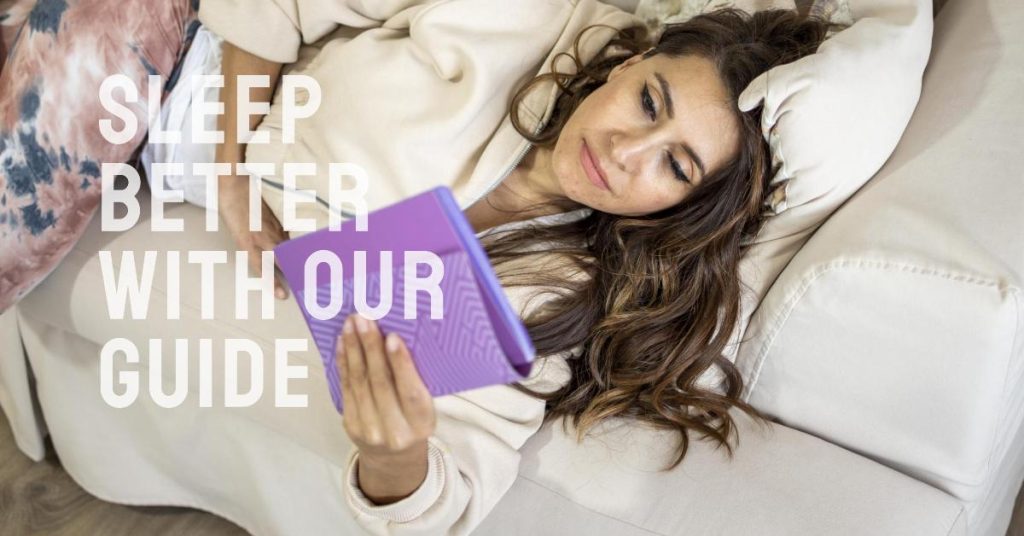
1. How can I fall asleep faster?
To fall asleep faster, establish a consistent bedtime routine, limit screen time before bed, create a relaxing sleep environment, and practice relaxation techniques such as deep breathing or meditation.
2. What are some tips for better sleep?
Some tips for better sleep include maintaining a consistent sleep schedule, optimizing your sleep environment, limiting caffeine and alcohol intake, and incorporating regular exercise into your routine.
3. What is sleep hygiene?
Sleep hygiene refers to habits and practices that promote regular sleep. These include maintaining a consistent sleep schedule, creating a restful environment, and avoiding stimulants before bed.
4. What are natural sleep aids?
Natural sleep aids include melatonin, valerian root, chamomile tea, and lavender. These can help promote relaxation and improve sleep quality, but they should be used with caution and ideally under the guidance of a healthcare provider.
5. What are some remedies for insomnia?
Insomnia remedies include practicing good sleep hygiene, establishing a regular sleep routine, managing stress and anxiety, avoiding stimulants and heavy meals before bedtime, and using natural sleep aids.
6. How can I create the best sleep environment?
To create the best sleep environment, ensure your bedroom is calm, dark, and quiet. Invest in a comfortable mattress and pillows, use blackout curtains, and consider using earplugs or a white noise machine to block out disruptive sounds.
7. What are sleep schedule tips?
Sleep schedule tips include going to bed and waking up at the same time every day, even on weekends, avoiding naps late, and establishing a relaxing bedtime routine to signal your body that it’s time to sleep.
8. How does mindfulness improve sleep?
Mindfulness improves sleep by helping reduce stress and anxiety, common causes of sleep problems. Techniques such as meditation, deep breathing, and progressive muscle relaxation can promote a state of calm and readiness for sleep.
9. What are relaxation techniques before bed?
Relaxation techniques before bed include deep breathing exercises, progressive muscle relaxation, guided imagery, meditation, and listening to calming music or nature sounds. These can help ease the transition from wakefulness to sleep.
10. How does diet affect sleep?
Diet affects sleep in various ways. Consuming caffeine, nicotine, and heavy meals close to bedtime can disrupt sleep. Conversely, foods rich in tryptophan, magnesium, and melatonin, such as turkey, nuts, and cherries, can promote better sleep.
11. How does exercise improve sleep quality?
Regular exercise improves sleep quality by helping you fall asleep faster, sleep more deeply, and feel refreshed in the morning. However, vigorous exercise should be done earlier to avoid interfering with sleep.
12. What are the benefits of melatonin?
Melatonin is a hormone that regulates sleep-wake cycles. It can help treat sleep disorders, jet lag, and insomnia by regulating the body’s internal clock and promoting sleep.
13. What treatments are available for sleep disorders?
Treatments for sleep disorders include lifestyle changes, cognitive-behavioral therapy for insomnia (CBT-I), medications, and the use of devices such as CPAP machines for sleep apnea. It’s essential to consult a healthcare provider for proper diagnosis and treatment.
14. How can I manage sleep anxiety?
Managing sleep anxiety involves practicing good sleep hygiene, establishing a relaxing bedtime routine, using relaxation techniques, keeping a worry journal, and seeking professional help.
15. What is the impact of blue light on sleep?
Blue light emitted from screens (phones, tablets, computers) can interfere with melatonin production, making it harder to fall asleep. Reducing screen time before bed or using blue light filters can help mitigate this effect.
Resources for Further Reading
National Sleep Foundation: www.sleepfoundation.org
The Sleep Doctor (Dr. Michael Breus): www.thesleepdoctor.com
American Academy of Sleep Medicine: www.aasm.org
“Why We Sleep” by Matthew Walker: Amazon Link
“The Women’s Guide to Overcoming Insomnia” by Dr. Shelby Harris: Amazon Link
Harvard Health Publishing on Sleep: www.health.harvard.edu/topics/sleep
By following the advice of these experts and utilizing these resources, you can be well on your way to improving your sleep habits and enjoying a better night’s rest.

